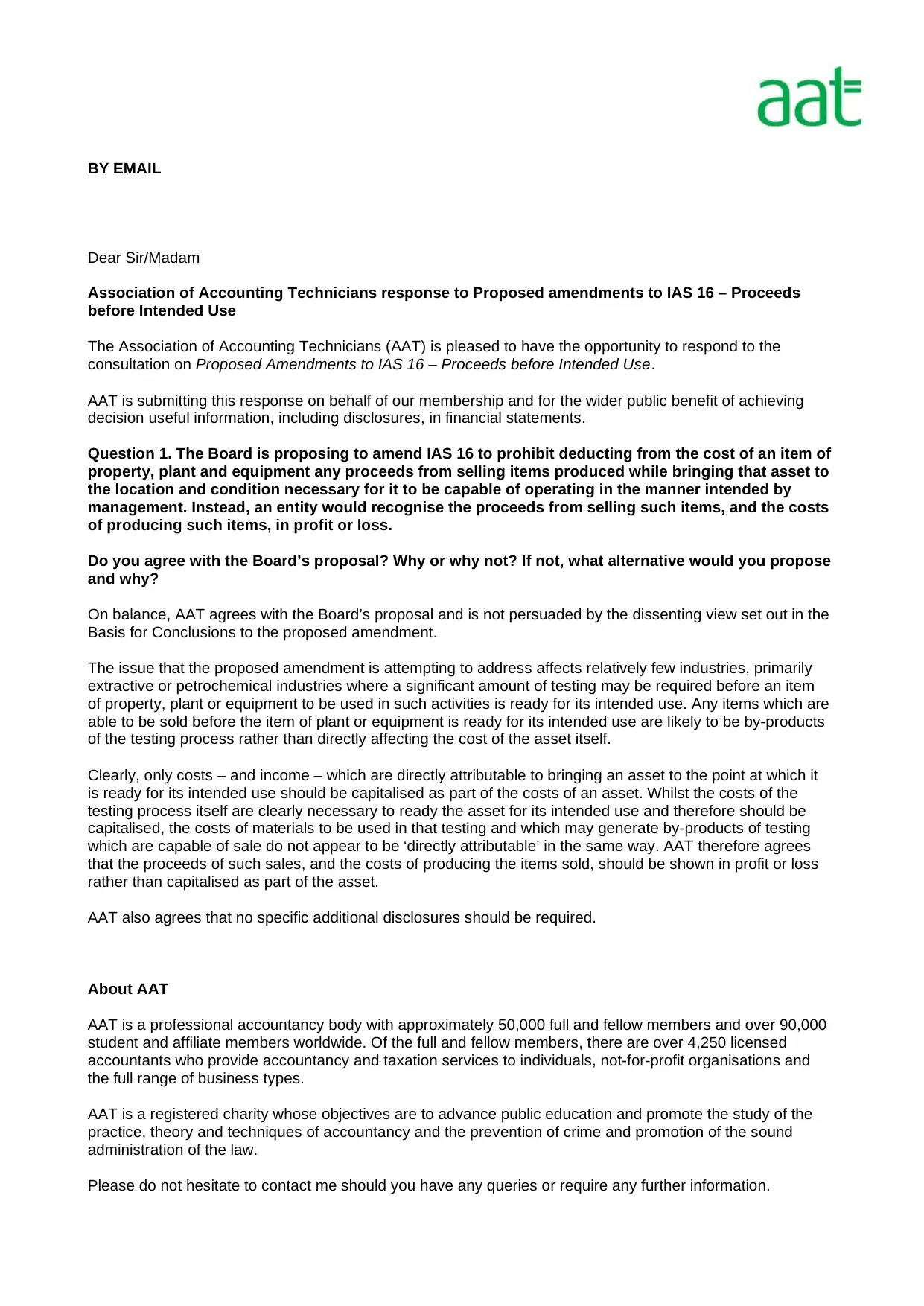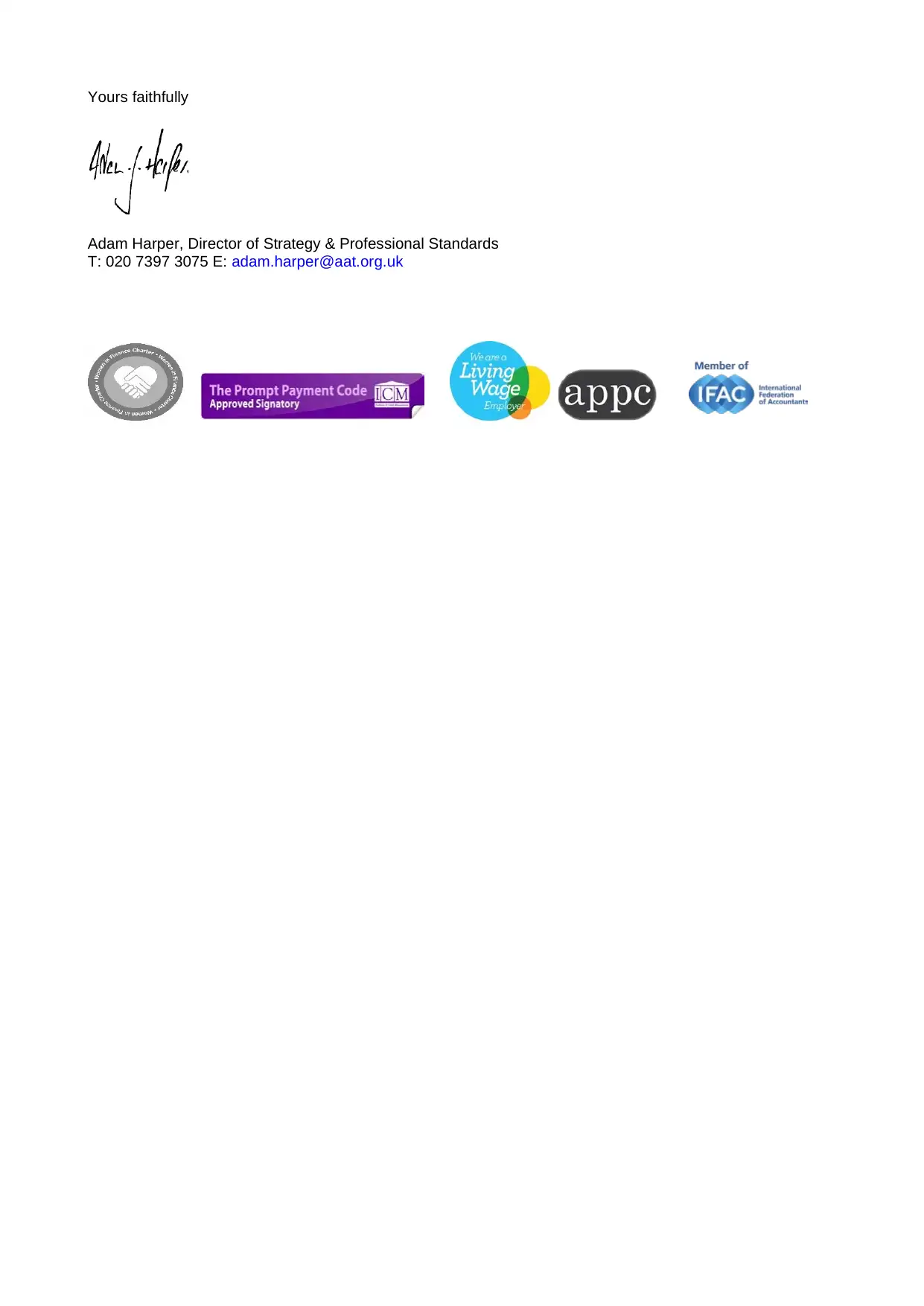IAS 16 Amendment Analysis & AAT Response: Proceeds Before Intended Use
VerifiedAdded on 2023/06/15
|2
|594
|288
Case Study
AI Summary
This case study presents an analysis of the proposed amendments to IAS 16 concerning the treatment of proceeds generated before an asset is ready for its intended use. It includes the Association of Accounting Technicians (AAT) response to the consultation, where AAT generally agrees with the proposed amendments, arguing that proceeds from selling items produced during the testing phase of an asset should be recognized in profit or loss rather than deducted from the cost of the asset. The AAT believes that the costs of materials used in testing, which may generate by-products capable of sale, are not directly attributable to preparing the asset for its intended use, and therefore, the proceeds and associated costs should be accounted for separately. The document also provides background information on AAT and its objectives, emphasizing its role in advancing public education and promoting sound accounting practices.
1 out of 2








![[object Object]](/_next/static/media/star-bottom.7253800d.svg)